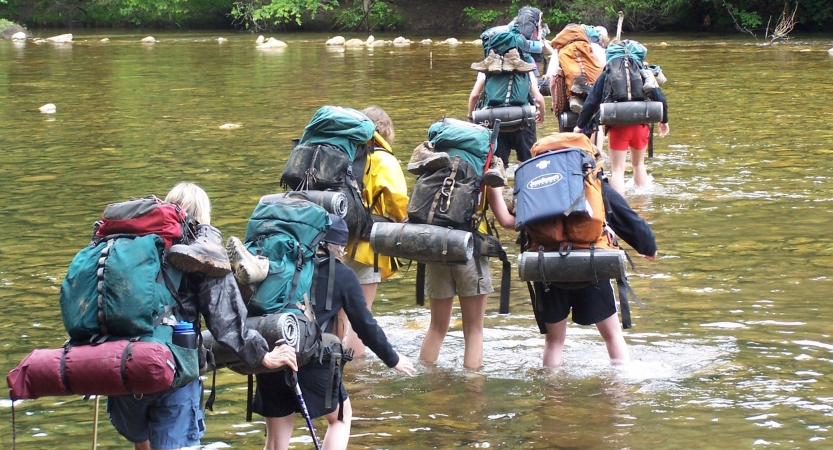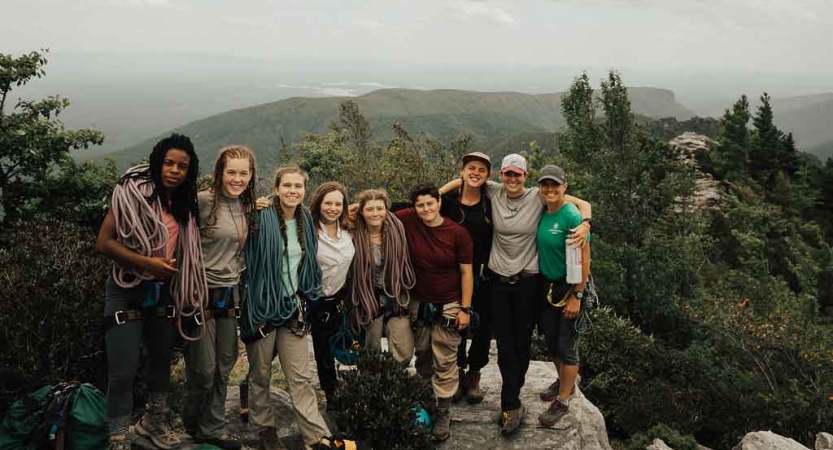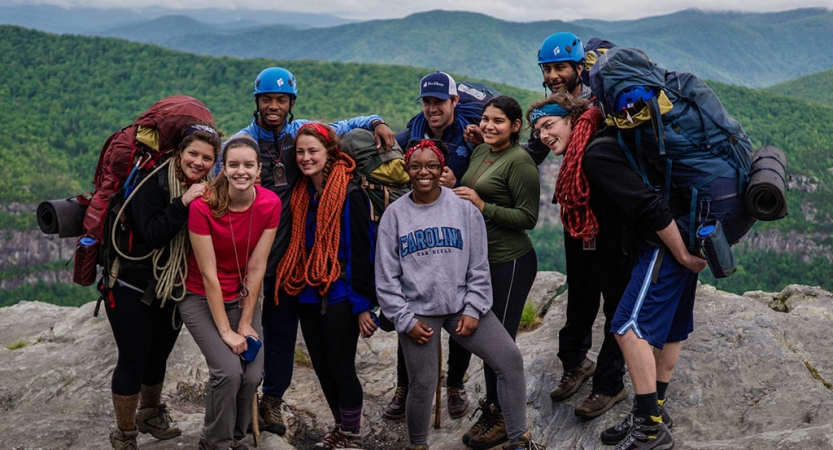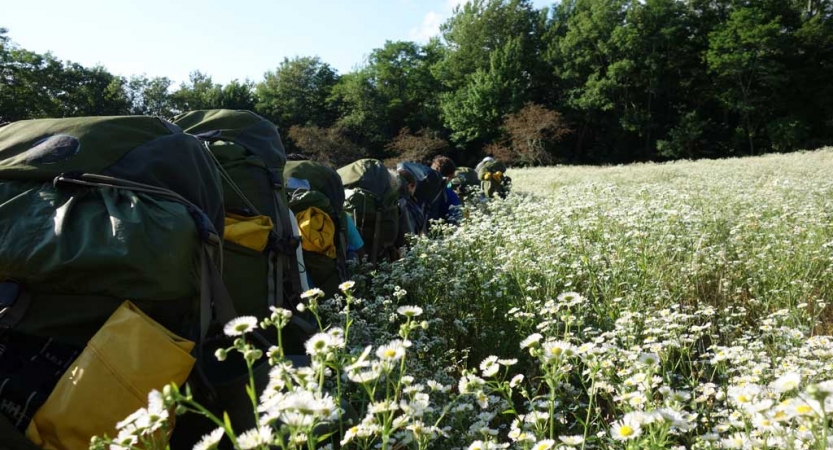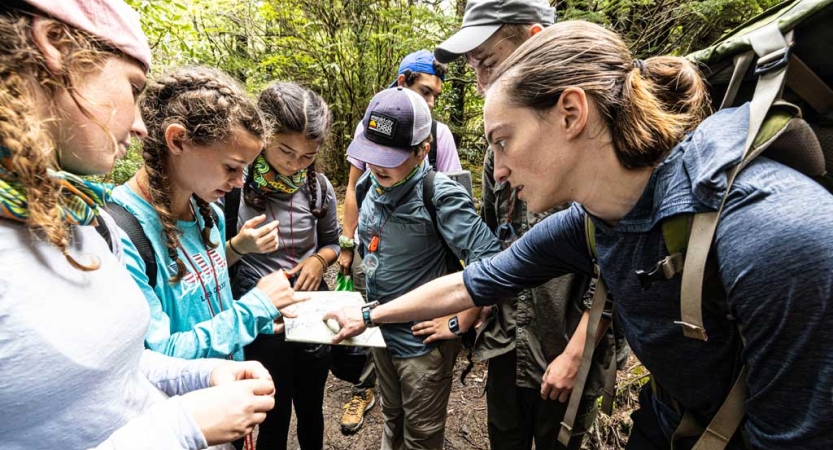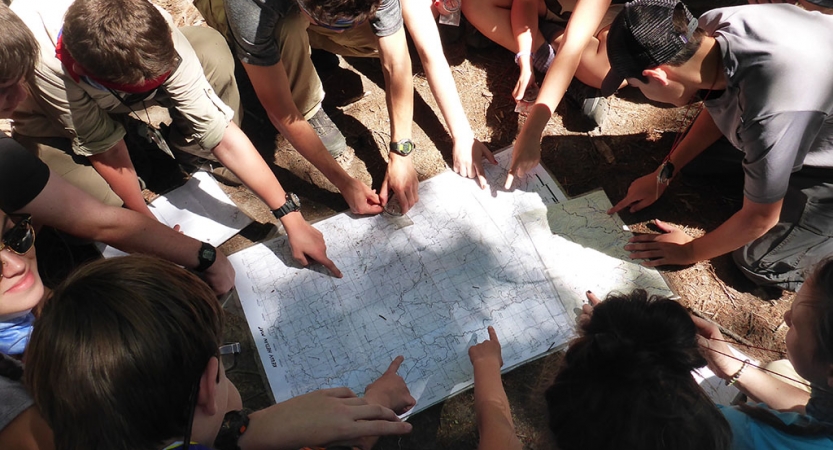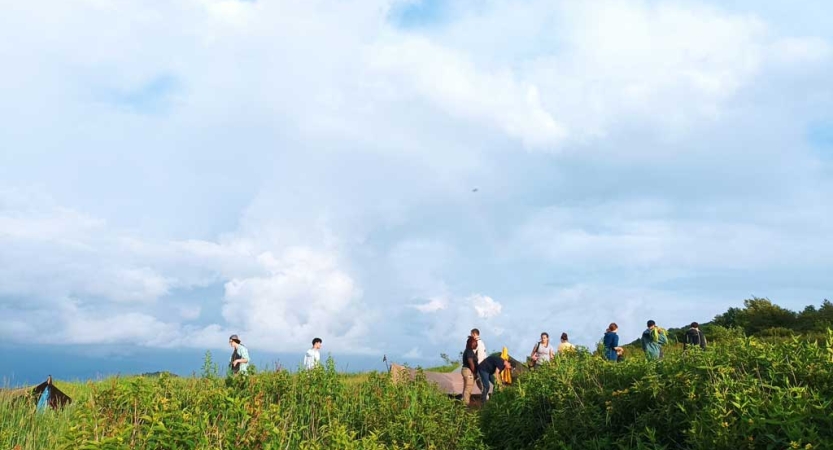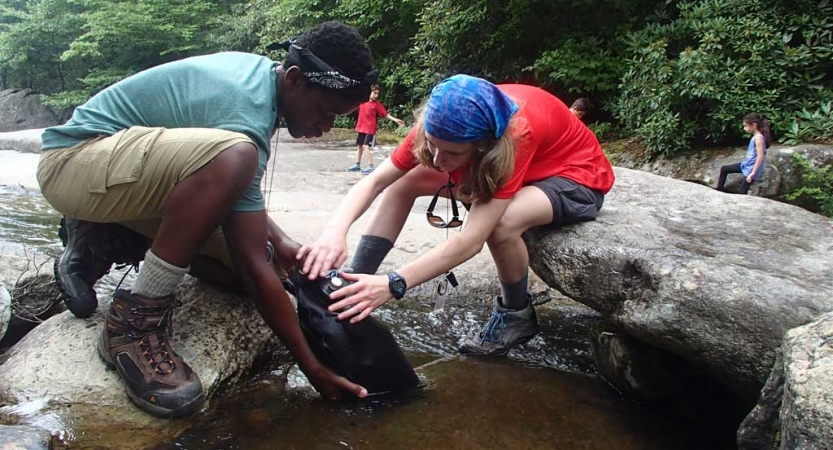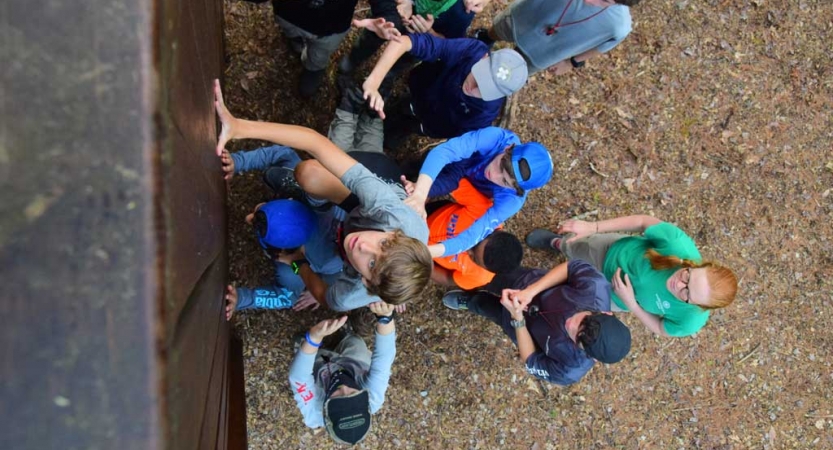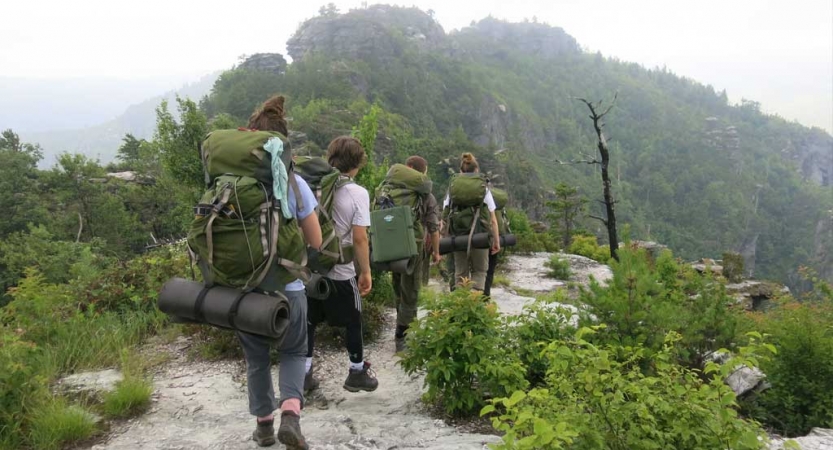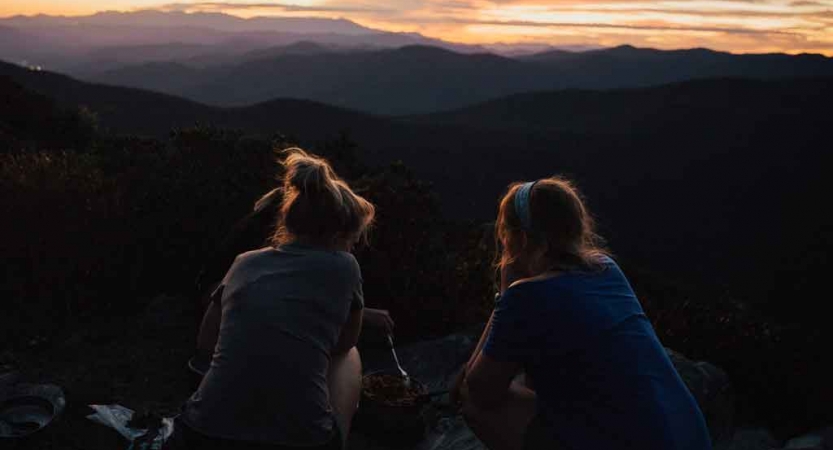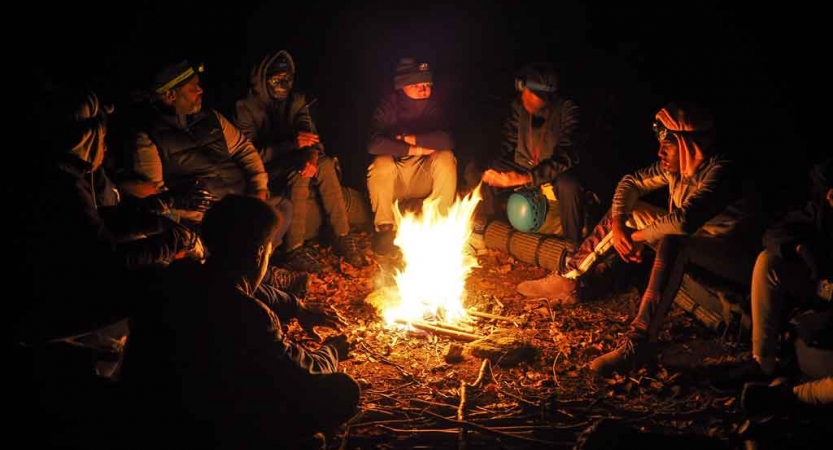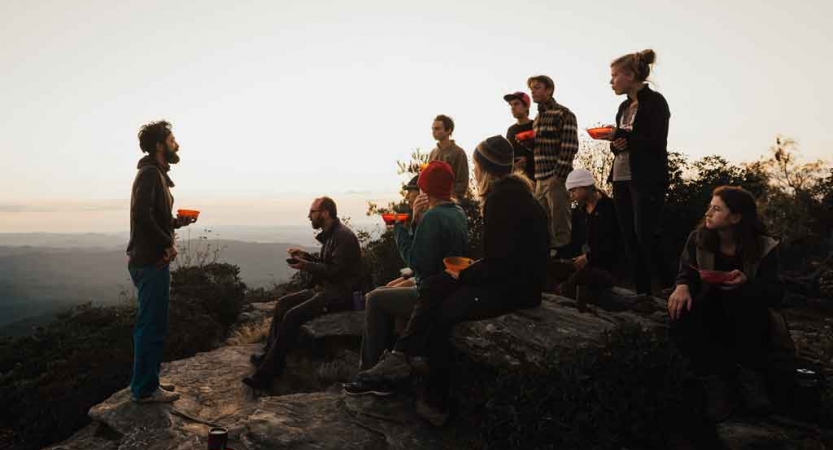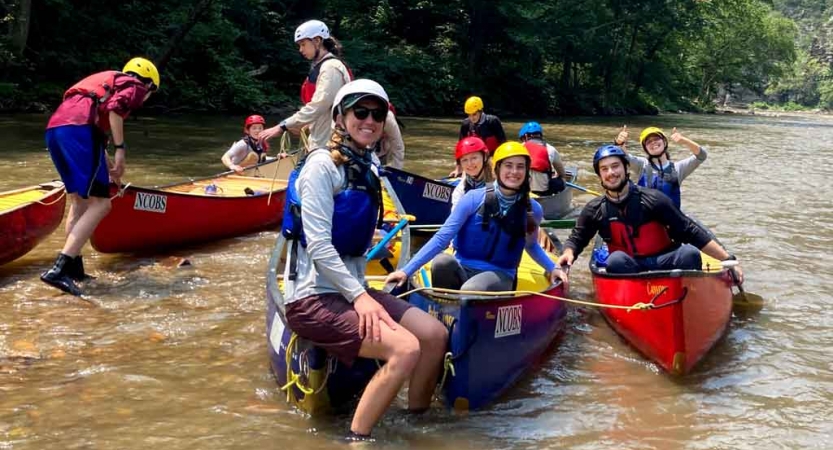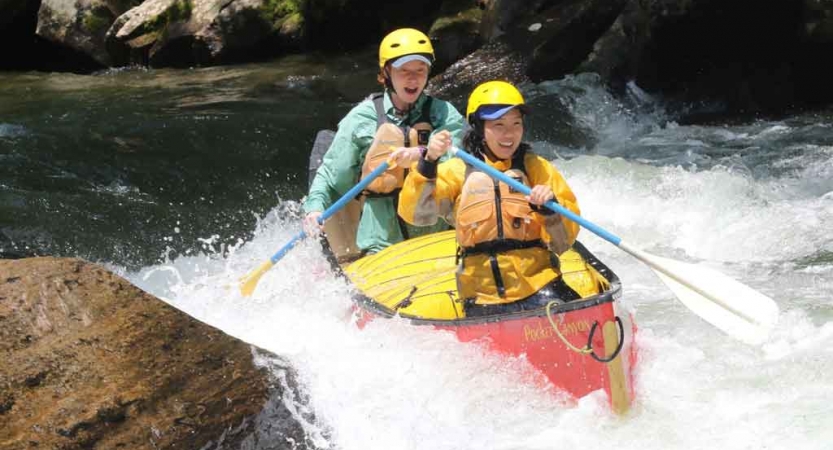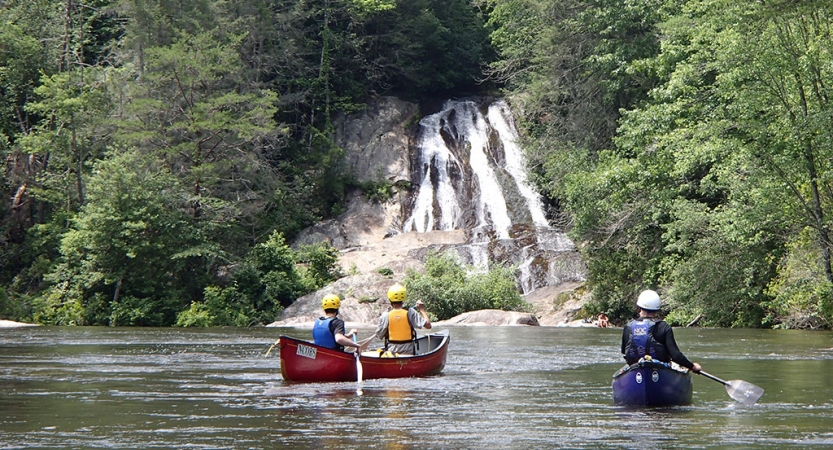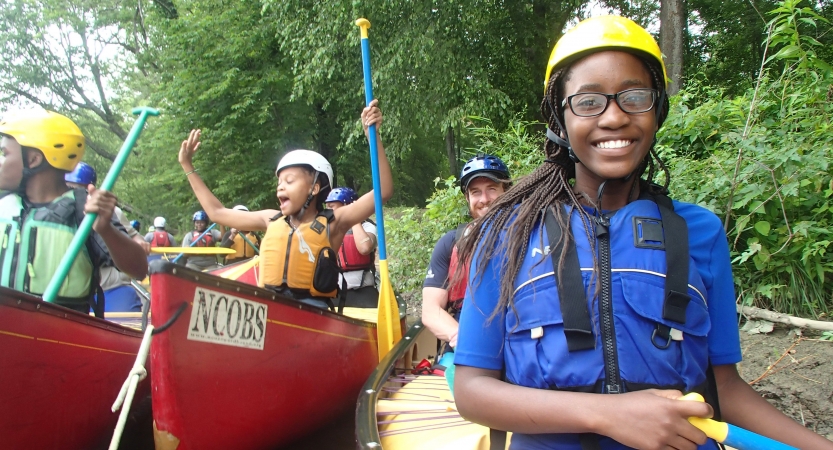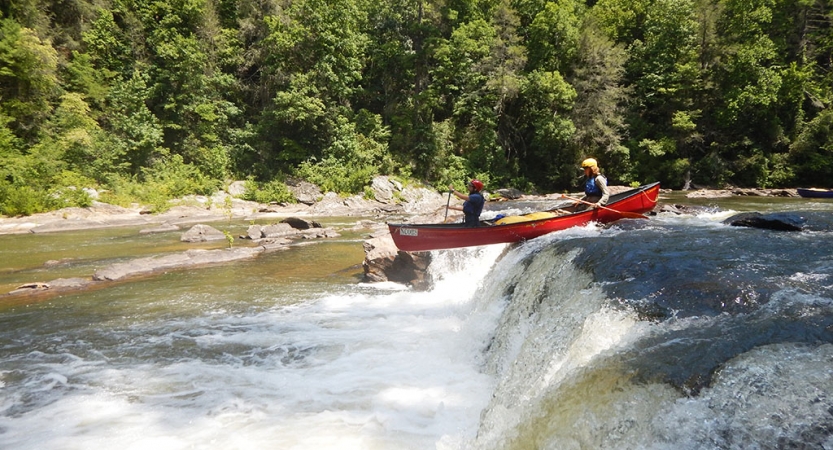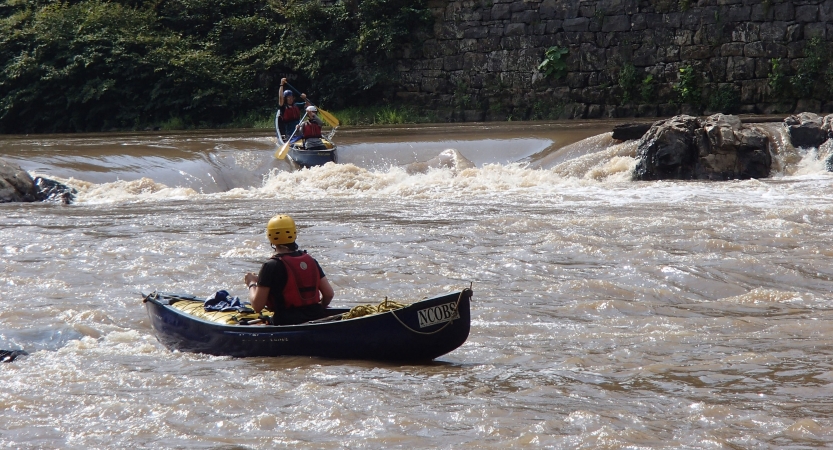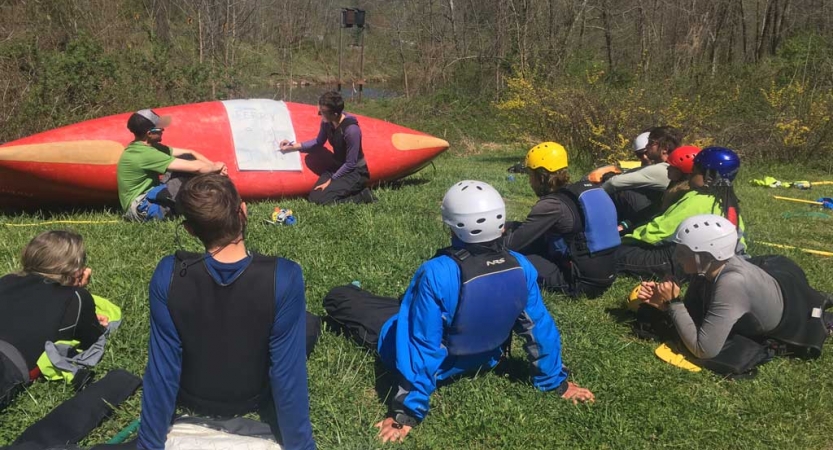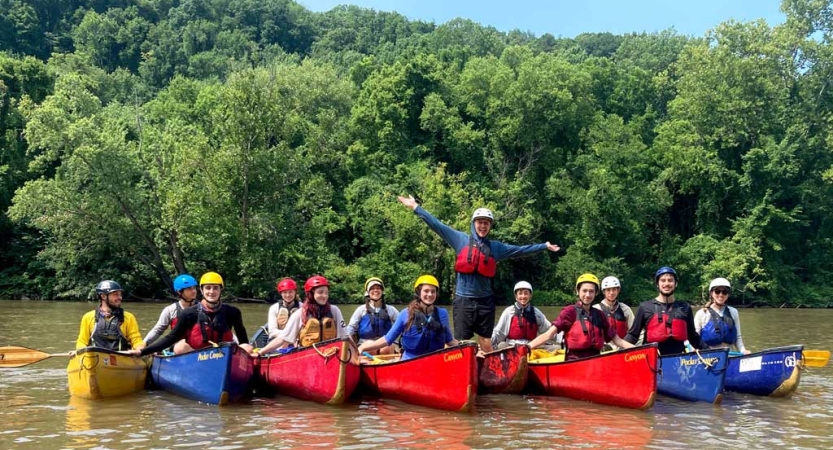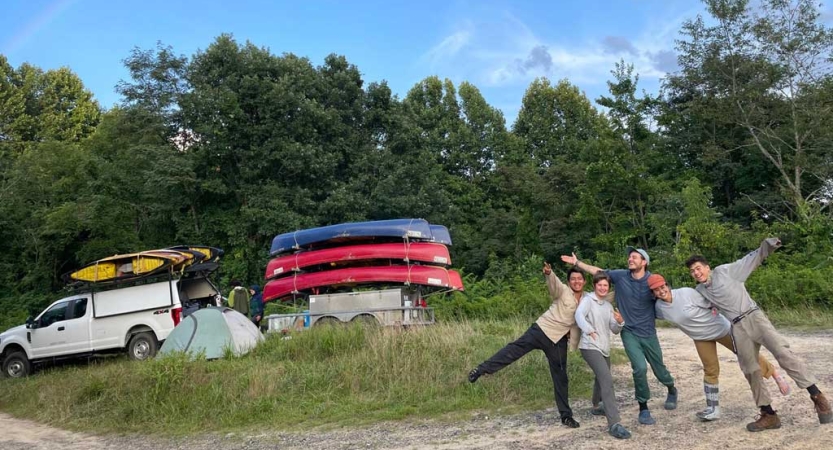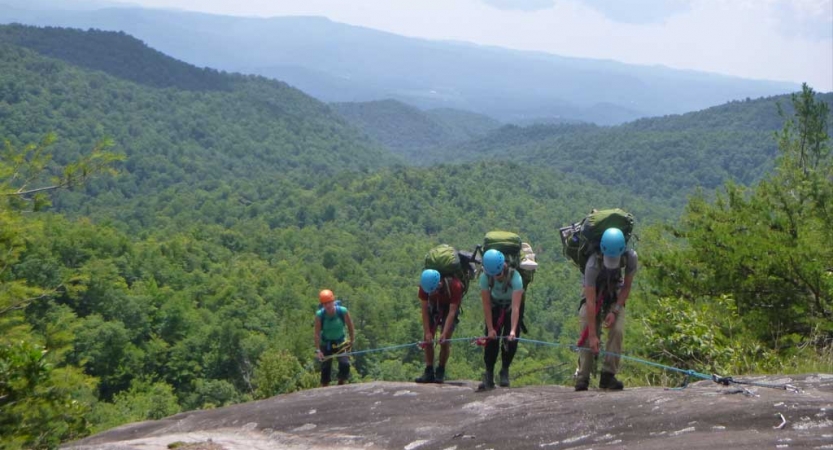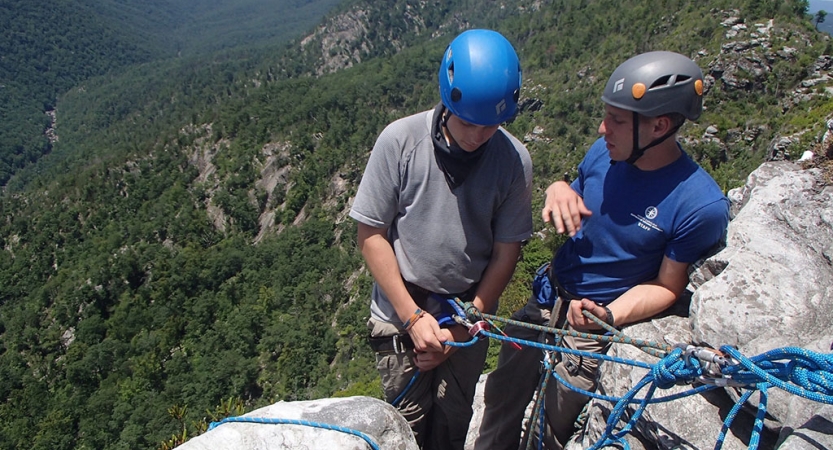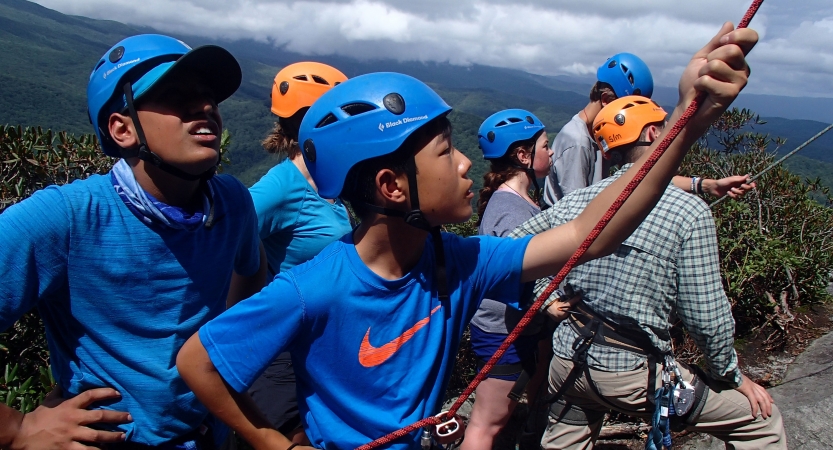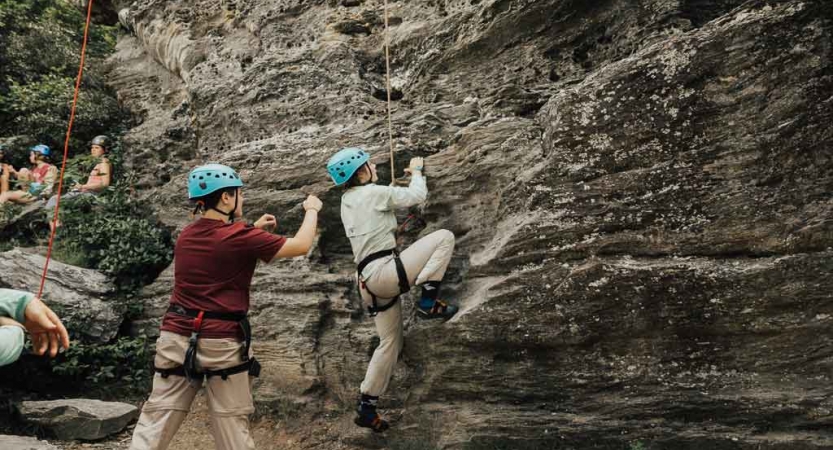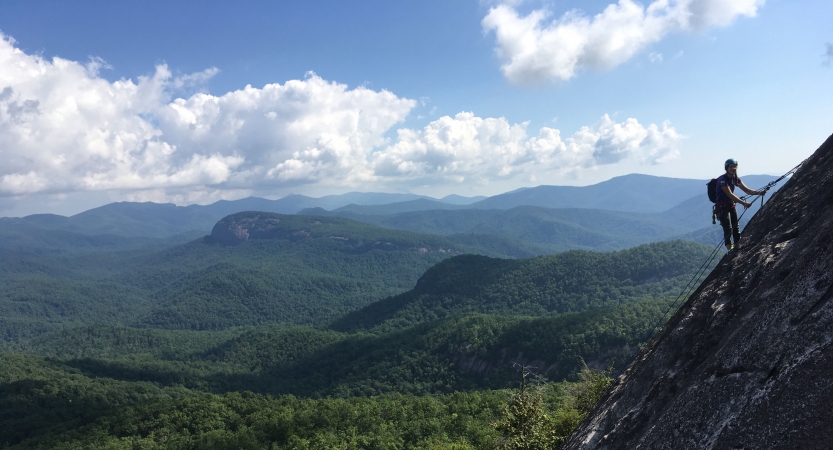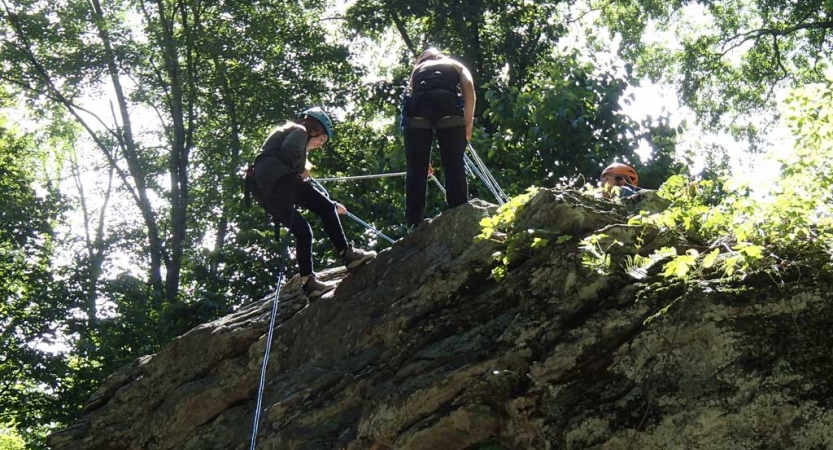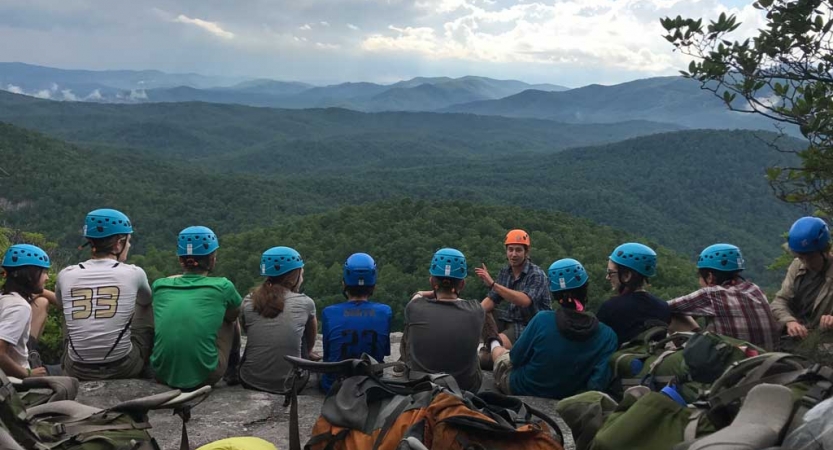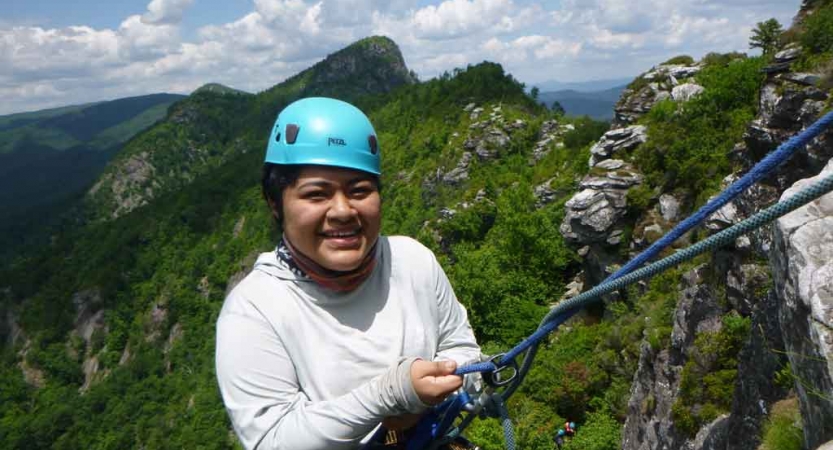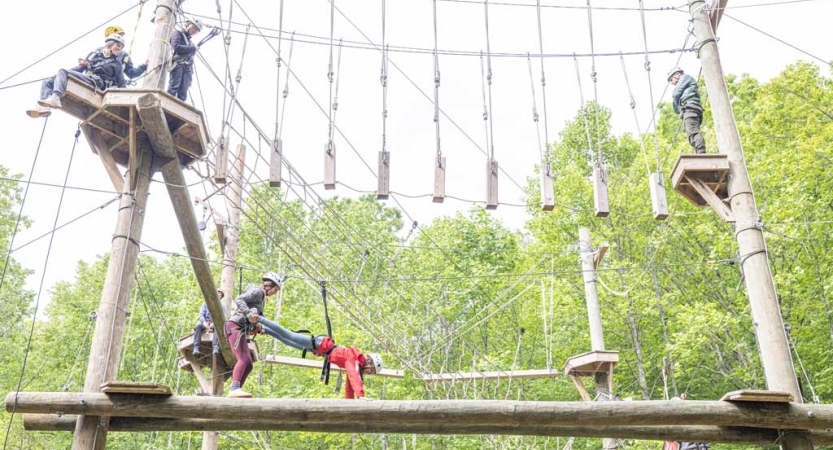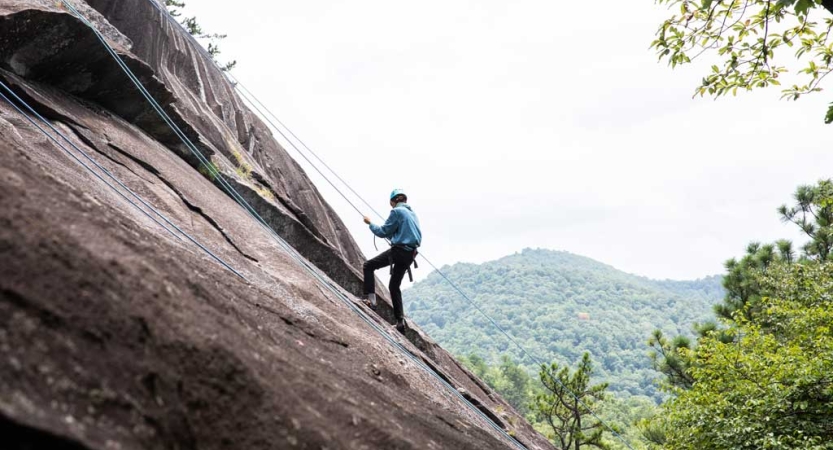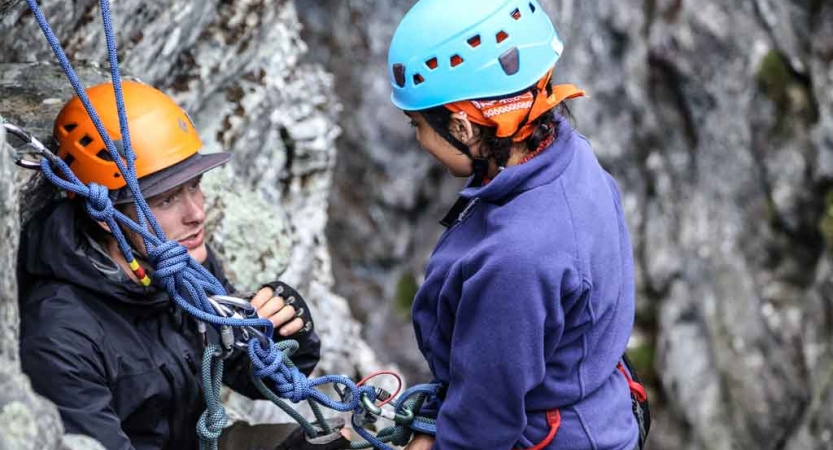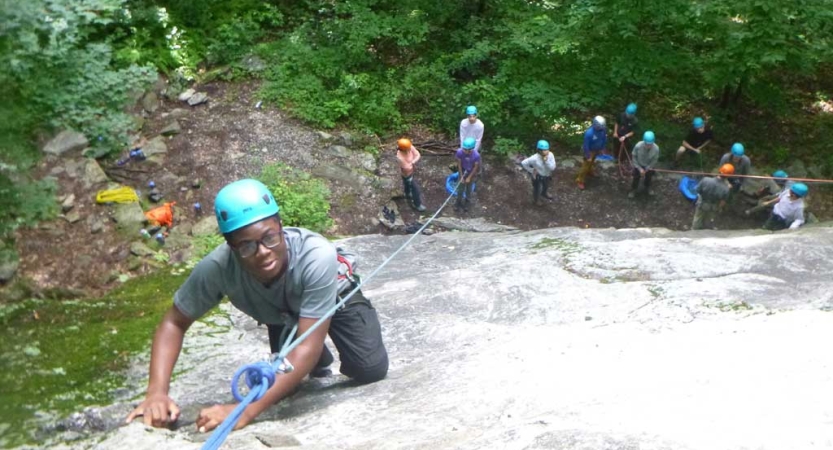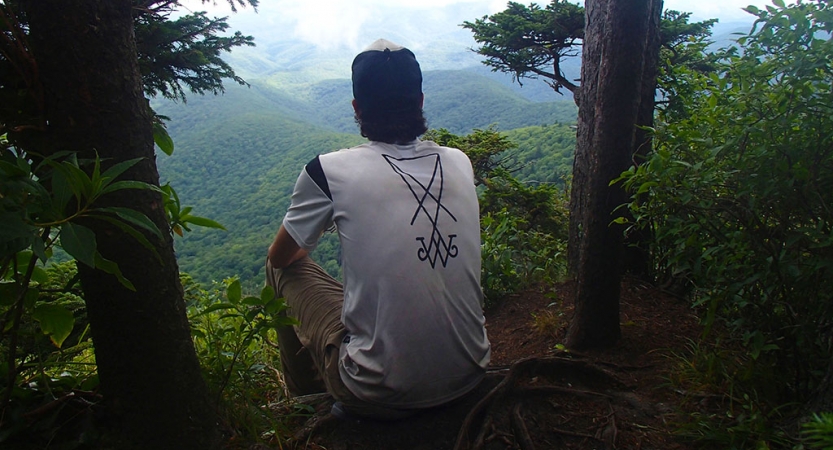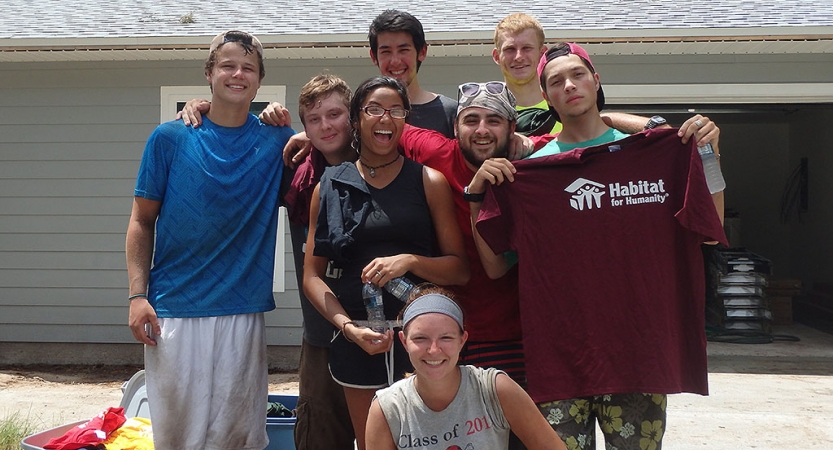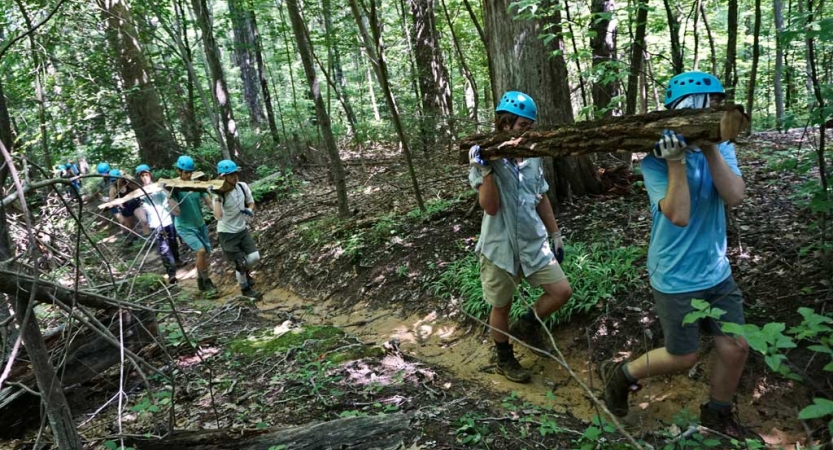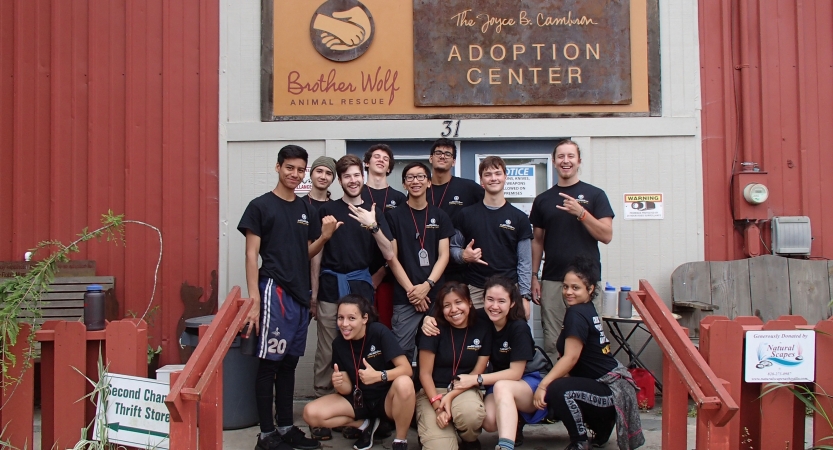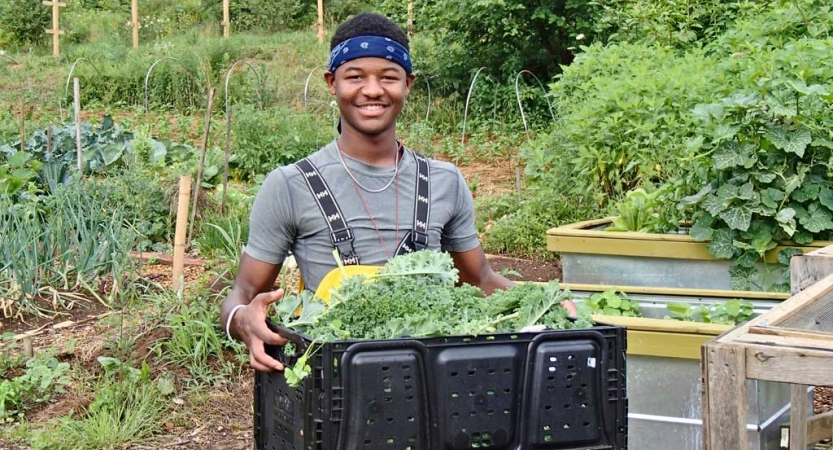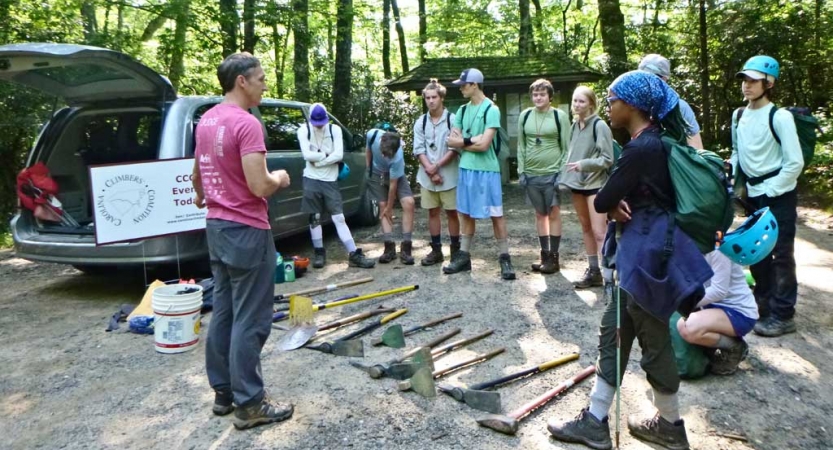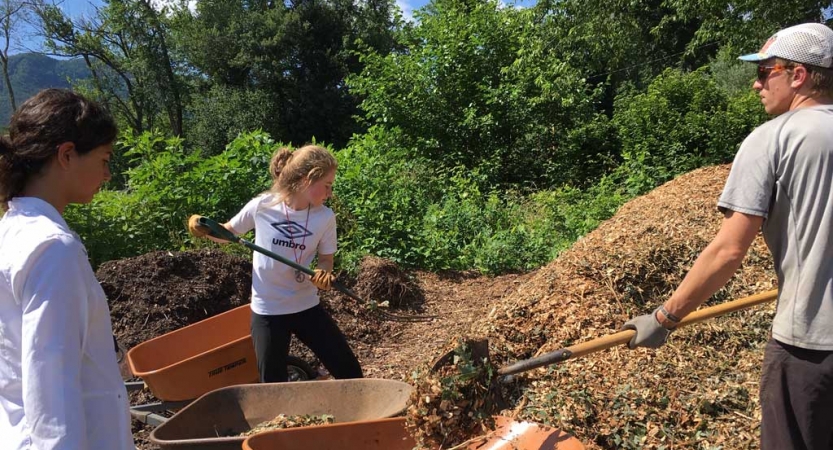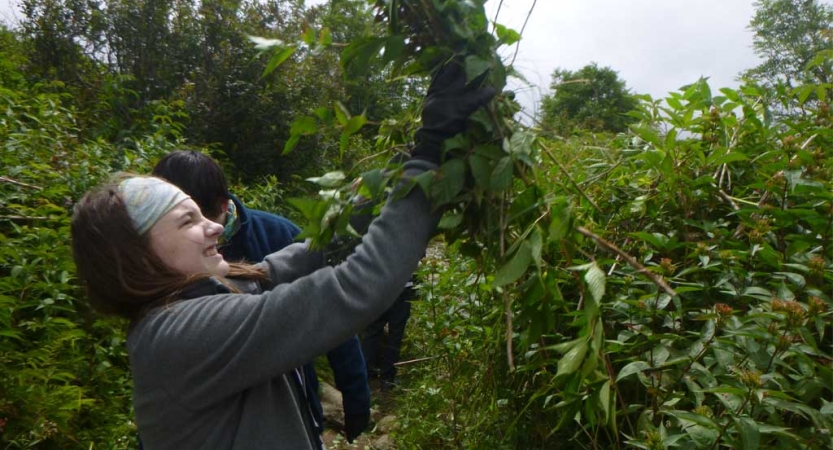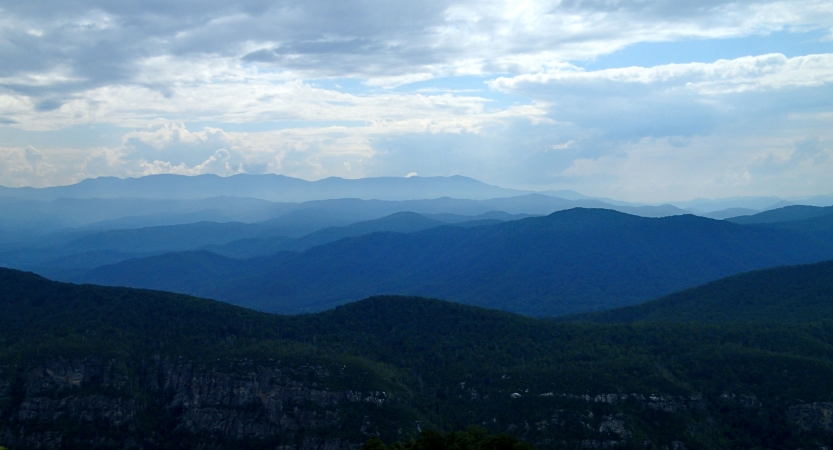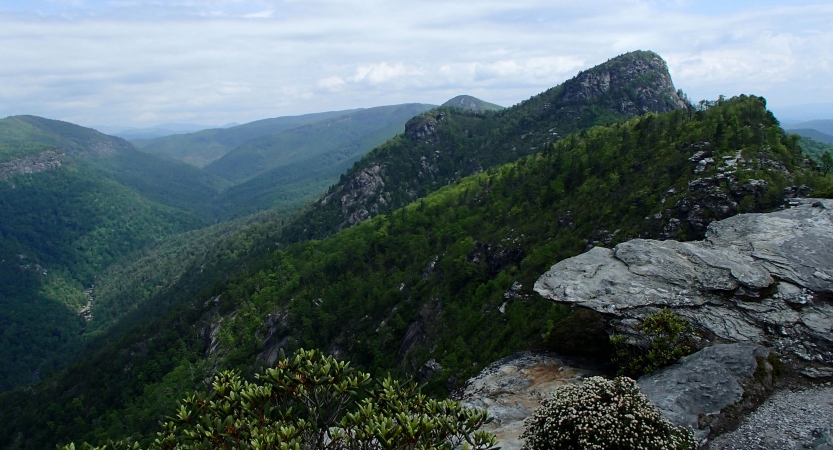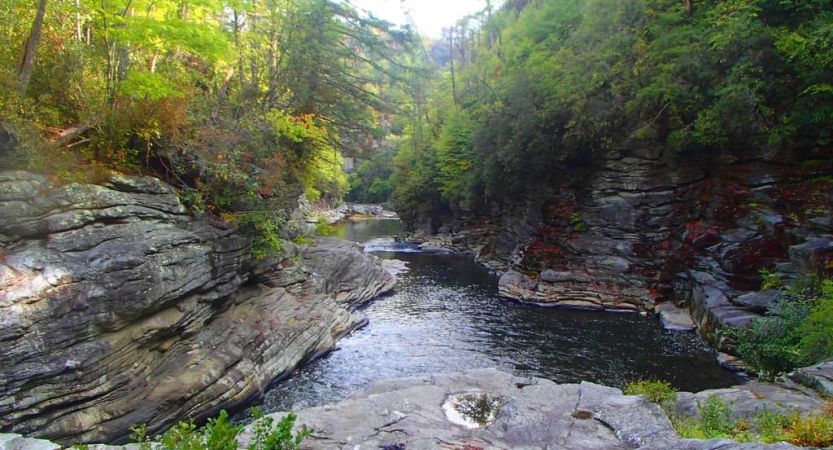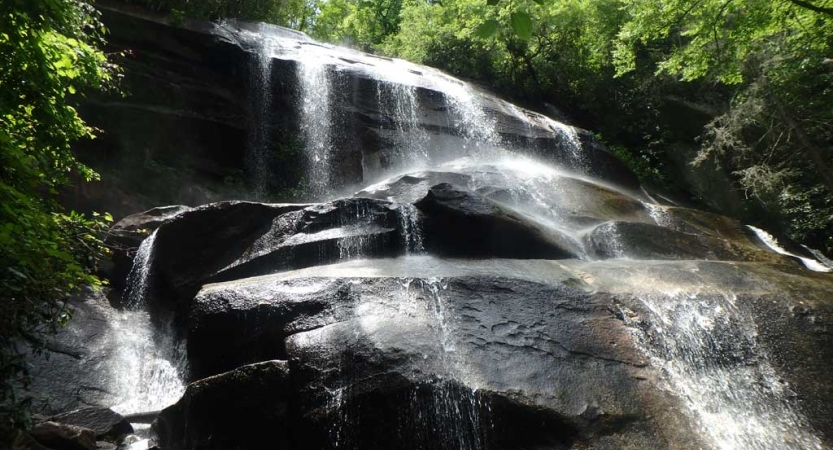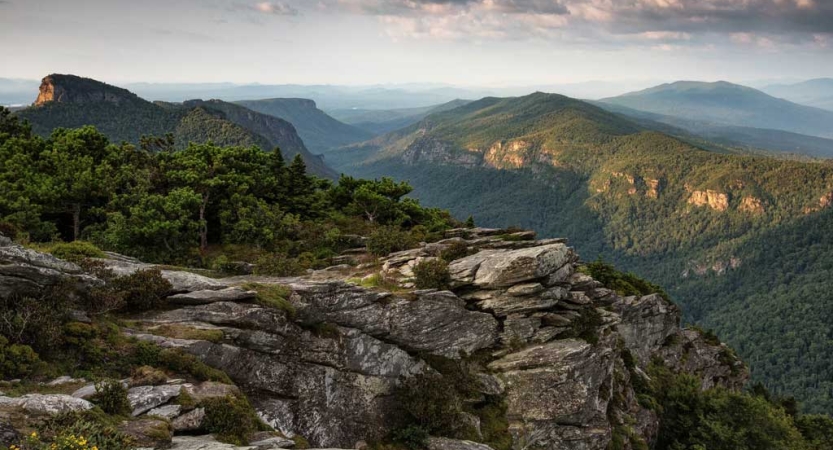-
EXPEDITIONS
-
Southwest Rafting
-
Potomac River Canoeing
-
Water Gap Backpacking, Canoeing & Leadership
-
High Sierra Backpacking & Rock Climbing for Boys
-
Maine Sailing & Backpacking
-
Water Gap Backpacking, Canoeing & Leadership
-
Chesapeake Bay Sea Kayaking
-
Southwest Rafting & Canoeing
-
Costa Rica Whitewater Rafting
-
High Sierra Alpine Backpacking & Rock Climbing for Adults
-
Boundary Waters Canoeing for Adults
-
Blue Ridge Mountains Backpacking & Rock Climbing for Adults
-
Yosemite Backpacking for Adults
-
Pathfinder Boundary Waters Canoeing & Backpacking
-
Pathfinder Southwest Canyoneering & Rafting
-
Pathfinder Blue Ridge Mountains Backpacking, Whitewater Canoeing & Rock Climbing
-
Pathfinder Rocky Mountains to Canyonlands
-
Blue Ridge Mountains to Florida & Patagonia Leadership Semester
-
Maine to Bahamas Leadership Semester
-
Canyonlands to Joshua Tree Leadership Semester
-
Costa Rica and Panama Leadership Semester
-
High Sierra Backpacking & Rock Climbing for Boys
-
Blue Ridge Mountains Backpacking & Rock Climbing for Families
-
High Sierra Alpine Backpacking & Rock Climbing for LGBTQ+ Teens
-
Ten Thousand Islands Sea Kayaking for Veterans
-
Blue Ridge Mountains Backpacking & Rock Climbing for Women Veterans
-
Ten Thousand Islands Canoeing for Veterans
-
Backpacking
-
Canoeing
-
Canyoneering
-
Dog Sledding
-
Mountaineering
-
Rafting
-
Rock Climbing
-
Sailing
-
Sea Kayaking
-
Service
-
Snow and Ice
-
EXPEDITION FINDER
CLASSIC FOR MIDDLE SCHOOL
FEATURED CLASSIC FOR MIDDLE SCHOOL
FEATURED CLASSIC FOR HIGH SCHOOL
FEATURED CLASSIC FOR ADULTS
FEATURED PATHFINDER
FEATURED SEMESTER
FEATURED OUTDOOR EDUCATOR
OUTDOOR EDUCATOR OVERVIEW INTERCEPTFEATURED INTERCEPT
INTERCEPT OVERVIEW AFFINITY GROUPSFEATURED AFFINITY GROUPS
FEATURED VETERANS
FEATURED ACTIVITIES
FEATURED SCHOLARSHIPS & ACADEMIC CREDIT
SCHOLARSHIPS & ACADEMIC CREDIT OVERVIEW PLANNING COMMUNICABLE DISEASE PRACTICESFEATURED COMMUNICABLE DISEASE PRACTICES

Program Overview
Skills
- Basic First Aid
- Basic Paddle Strokes
- Belaying a Climber
- Campcraft
- Food Preparation and Cooking
- Knots
- Map and Compass
- Natural History
- Navigation
- Rappelling
- River Reading
- Safety and Risk Management
- Self Care
- Character
- Communication
- Conflict Resolution
- Empathy
- Independence
- Leadership
- Positive Risk Taking
- Problem Solving
- Responsibility
- Self Awareness
- Self Confidence
- Service
Let’s Connect!
Blue Ridge Mountains Backpacking, Whitewater Canoeing & Rock Climbing
« Back to SearchDiscover what it’s like to live, work, and play in the great outdoors of Western North Carolina on this classic, multi-activity leadership course.
Embark on a wilderness journey through some of the world’s oldest mountains, exploring rocky mountain faces and racing river rapids. Immerse yourself in the Pisgah and Nantahala National Forests where you and your crew will navigate through lush forests, navigate rushing rivers by canoe, and build trust belaying one another while rock climbing. Learn essential skills like cooking meals in the backcountry, setting up camp under the stars, and practicing Leave No Trace principles to minimize your impact on the land. Longer courses also allow enough time to engage in a meaningful service project where you will discover the true meaning of giving back to your community and your ability to lead with compassion.
Thank you for considering the North Carolina Outward Bound School. Stay up to date by reviewing their Tropical Storm Helene Response & Updates.
Program Overview
Skills
- Basic First Aid
- Basic Paddle Strokes
- Belaying a Climber
- Campcraft
- Food Preparation and Cooking
- Knots
- Map and Compass
- Natural History
- Navigation
- Rappelling
- River Reading
- Safety and Risk Management
- Self Care
- Character
- Communication
- Conflict Resolution
- Empathy
- Independence
- Leadership
- Positive Risk Taking
- Problem Solving
- Responsibility
- Self Awareness
- Self Confidence
- Service
UPCOMING COURSES
This course is closed for the season.
APPLY NOW
This means a course has several open spots and is actively processing applications.
APPLY NOW – Almost Full
This means there are three or fewer currently available spots left on a course. To secure your spot click Apply Now to begin an application!
JOIN WAITLIST
Once a course has reached capacity, three waitlist positions become available. To join a course’s waitlist, click “Join Waitlist” to begin the application process. A $500 deposit is required. This $500 deposit includes a $150 non-refundable application fee and a $350 tuition payment. The $350 tuition payment is refundable only if you cancel your waitlist application or if an open position does not become available. If a position does become available, the applicant will be applied to the open position and the Application and Cancellation Policies of the Regional Outward Bound School will be followed, including forfeiture of the $500 deposit if you cancel 90 days or less prior to the course start date.
Waitlist applicants are encouraged to complete all required admissions documents while awaiting an open position. Positions may become available up to two weeks prior to the course start date. Applicants may only apply to one course. We recommend applying to a course with open positions instead of a course that is accepting waitlist applications. If you have questions, please call 866-467-7651 to speak with one of our Admissions Advisors.
CALL TO APPLY
This means a course is very close to its start date. Although it is unlikely to secure a spot this late, you can call the National Admissions office at 866-467-7651 to discuss your options.
COURSE IS FULL
When a course has reached maximum capacity, meaning all spots and the three waitlist spots are occupied, a course will read “Course Is Full.” This means applications are no longer being accepted.
CLOSED
As a course nears its start date, the availability status may read “Closed.” In this event, a course roster has been finalized and applications are no longer being accepted or processed.
This course starts in . Are you sure you would like to proceed?
I recently completed a 22-day course of backpacking, rock climbing and paddling in the Blue Ridge Mountains. It was the most incredible and challenging experience of my life thus far. Everything was amazing: my crewmates, my Instructors, the location and the activities. I became incredibly close with my 11 crewmates and Instructors. My Instructors showed me exactly how comfortable and confident I am in the wilderness and on a rock face, which was incredibly empowering. I am so much more confident and strong, both physically and mentally, after my course.
Make new friends, sleep under the stars, and learn skills for outdoor adventure. Outward Bound’s Classic expeditions are designed to empower middle and high school students with the tools and confidence they need to navigate life’s ever-changing tides. By taking on challenges outdoors, students discover their strengths, make meaningful connections and return home with the skills needed to embark on bold futures.
- Develop Connections. Bond with your crew by having fun and engaging in meaningful conversations.
- Learn Outdoor Skills. Cook delicious meals outside, navigate with a map, and build a backcountry campsite.
- Practice Leadership and Teamwork. Learn to be both a leader and team player.
- Build Confidence that Lasts a Lifetime. Discover your unique strengths.
We welcome students of all skill levels, whether they are an avid backpacker or trying something new. During backpacking days, students learn the different parts of camp craft, how to navigate with a map and compass, and Leave No Trace principles that minimize their impact on the land. Students feel a sense of freedom in carrying everything they need in their packs - food, shelter, clothing, and gear.
In addition to technical skills, students learn conflict resolution, communication styles, leadership techniques, and teamwork. After the crew has practiced these skills, Instructors will take a step back and allow the group to lead themselves. They are rewarded with plenty of laughter and stunning misty mountain vistas.
Students will learn to maneuver Class I-Class III whitewater rapids after a few days of wilderness fundamentals and building crew camaraderie. Paddling through sculpted rock channels in tandem (two-person) canoes offers the perfect opportunity to foster teamwork and communication skills. Students will execute synchronized strokes, dynamic eddy turns, peel-outs, and ferries on the French Broad, Tuckaseegee, Chattooga, New, or Nantahala Rivers. Some of the topics crews cover during this portion of the course include identification and use of equipment, paddling strokes, basic water safety and rescue techniques, and how to work with paddling partners to successfully negotiate Class l-Class III rapids.
With a focus on safety, climbing instruction starts by teaching the basics, such as working with ropes and learning to tie knots. As students progress, they'll learn to climb up, or rappel down, a rock face. They may also have the opportunity to work through a high ropes obstacle course together. These uniquely structured activities provide opportunities for self-reliance, communication, and collaboration as participants confront and work through fears and challenges.
A little more than halfway through course, students will participate in a reflection period called Solo. During this time, Instructors assign students their individual spaces within a designated area. These sites are secluded and within hearing distance of other group members and Instructors for safety. Students are given all the necessary gear, food, water, and skills to enjoy this time alone. Solo is an excellent opportunity for students to relax, recharge, and reflect on their course after having long days of strenuous group activities. They also know the location of their Instructors should they need to contact them for any reason. Instructors will be monitoring students closely during this experience.
Service is an integral part of every Outward Bound course, allowing students to experience a deeper relationship with the environment and local communities. Participants follow Leave No Trace ethics as service to the environment and do acts of service while leading and supporting fellow participants. During longer courses, students can engage in meaningful service projects such as maintaining trails, partnering with nonprofits, or assisting local farms and gardens. These projects enable students to experience the profound impact of giving back to their community and leading with compassion. As students develop a value of service, they transfer this desire to serve their communities back home.
Although 22 days seems like a long time, this course offers the optimal duration for getting the classic Outward Bound experience. In addition to profound personal growth as each student practices leadership and decision-making skills, these longer courses also allow for team development. Crews often go through four common phases of working in a team: forming, storming, norming and performing. Upon first forming, team members are positive and often anxious as they try to understand what their role will be within the team. Through challenging circumstances, the crew often reaches a storming stage where they begin pushing boundaries with their teammates and circumstances. This is the turning point of the course as the team moves on to the next stage where they resolve their differences, ask each other for help and commit to a goal. Finally, teams excel in the performing phase, conquering previously unimaginable challenges together.
Blue Ridge Mountains, NC
The Blue Ridge Mountains, or Southern Appalachians, is one of the oldest mountain ranges in the world. While the mountains formed over 250 million years ago, some rocks underlying the region are over a billion years old. The Southern Appalachians' long geologic and evolutionary history has created one of North America's most biologically diverse regions. Some even say it is “rainforest-like.”
This region is home to beautiful rushing rivers, hundreds of waterfalls, and some of the highest peaks in the Eastern United States—including Mt. Mitchell (elevation 6,684 feet), the highest point east of the Mississippi River. Its diverse landscapes have been featured in many motion pictures, including The Hunger Games and The Last of the Mohicans.
Outward Bound students can expect to share the wilderness with over 700 kinds of trees, more than 50 types of mammals, 150 different types of birds, and over 50 species of amphibians. The huge numbers of trees and plants give these mountains their namesake. Trees put the ‘blue’ in the Blue Ridge Mountains from the organic chemicals they release into the atmosphere, thereby contributing to the distinctive color of these mountains. Temperatures in this area range from 50 to 85 degrees in the summer, 30 to 65 degrees in the spring and fall, and 10 to 50 degrees in the winter. These regions are the ancestral lands of the Cherokee.
Course Stories
I recently completed a 22-day course of backpacking, rock climbing and paddling in the Blue Ridge Mountains. It was the most incredible and challenging experience of my life thus far. Everything was amazing: my crewmates, my Instructors, the location and the activities. I became incredibly close with my 11 crewmates and Instructors. My Instructors showed me exactly how comfortable and confident I am in the wilderness and on a rock face, which was incredibly empowering. I am so much more confident and strong, both physically and mentally, after my course.
OTHER COURSES YOU MAY LIKE


Colorado Rockies Alpine Backpacking fo...
, , , Courses: 0 dates available Ages: 12-13 , 14-16 Length: 8 Days Cost: $3,375 Details & Dates

Blue Ridge Mountains Backpacking & Whi...
Courses: 1 date available Ages: 14-16 , 16-18 Length: 9 - 14 Days Cost: $3,660 - $5,105 Details & Dates

Costa Rica Backpacking & Surfing
Courses: 2 dates available Ages: 14-16 , 16-18 Length: 7 - 12 Days Cost: $2,990 - $4,750 Details & Dates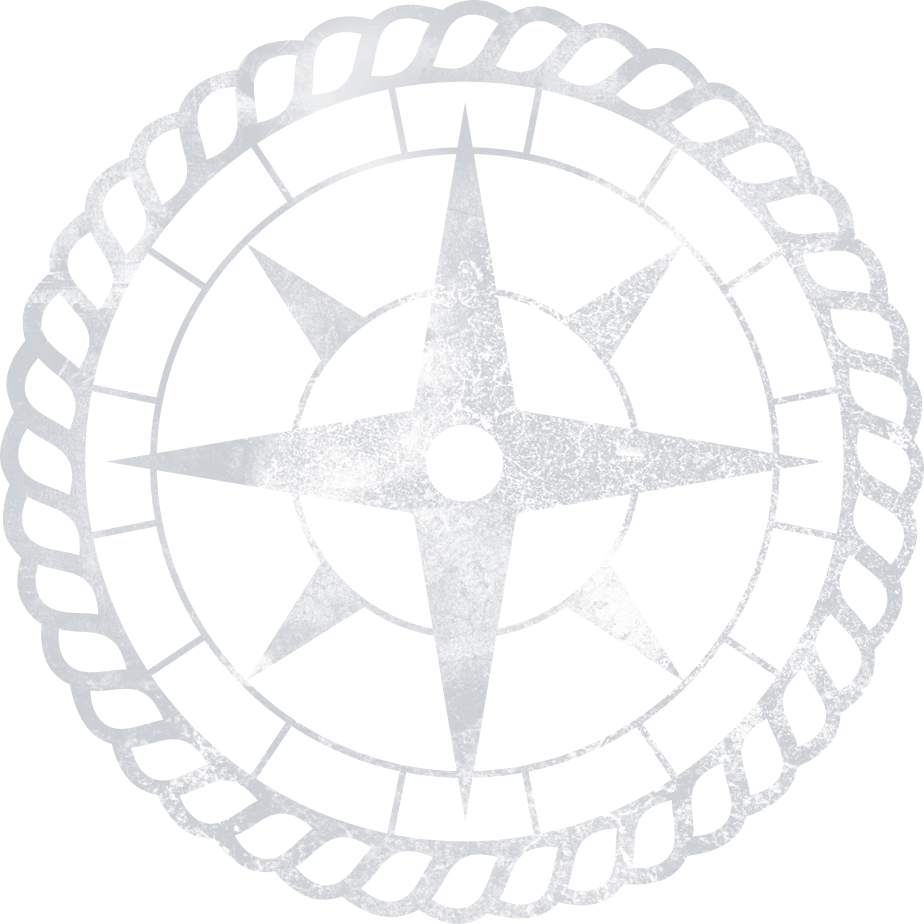
Getting Started
If you are ready to enroll on a course click the enroll button next to the course you wish to select or you can enroll over the phone by speaking with one of our Customer Success Specialists (toll-free) at 866-467-7651.
To secure your spot on a course you must submit an enrollment form and $500 deposit that is applied toward the total cost of the course and includes a $150 non-refundable enrollment processing fee.


